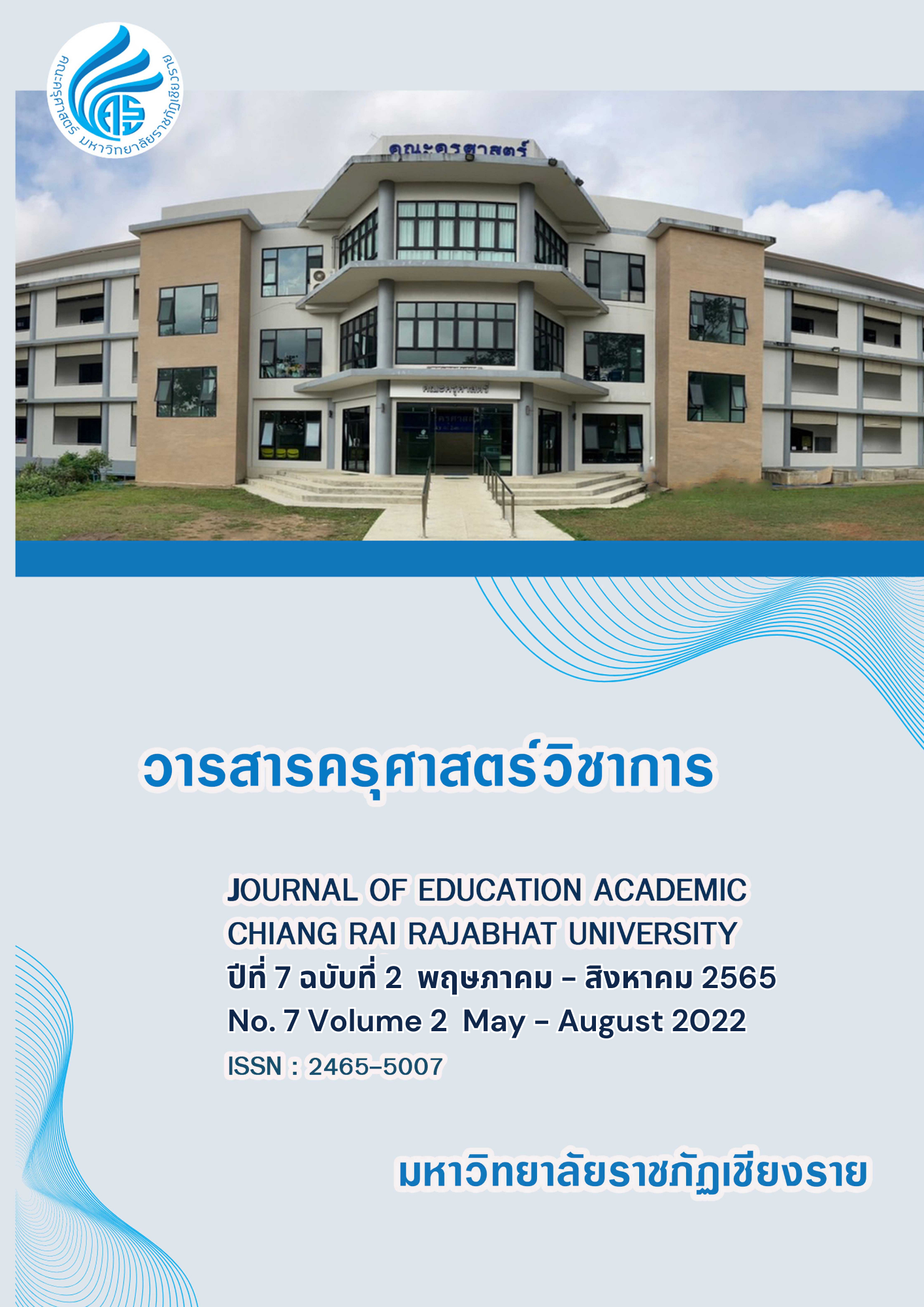Guidelines for School Administration in Accordance with New Generation School’s Quality Assurance in Hun Sen Kampong Cham High School
Keywords:
Guidelines for School Administration, New Generation School’s, Quality AssuranceAbstract
This research study consists of four main objectives; 1). To study the current situation of school administration in accordance with New Generation School’s quality assurance in Hun Sen Kampong Cham, 2). To study needs and requirements of school administration in accordance with New Generation School’s quality assurance in Hun Sen Kampong Cham, 3). To study main factors affecting on school administration in accordance with New Generation School’s quality assurance in Hun Sen Kampong Cham, 4). To develop guidelines for school administration in accordance with New Generation School’s quality assurance in Hun Sen Kampong Cham. The population were 37 participants including 37 school administrators and teachers in Hun Sen Kampong Cham high school, and 1 New Generation School program manager. The research study was designed in mixed method research (explanatory sequential design) by using questionnaire in phase 1 and interviews in phase 2, 3, and 4. Means and standard deviations are used to analyzed the data in phase 1, while content analysis is used to analyze the data in 2, 3, and 4 with summarize the content into essay format. The research findings shown that:
- The current situation of school administration in Hun Sen Kampong Cham high school is in high quality level. The highest average point is administrative management, and the lowest average point is supporting system. The result also shown that the school process in quality assurance is in high level. The highest point is planning, and the lowest point is checking.
- The results of needs and requirements of school administration in accordance with new generation school’s quality assurance in Hun Sen kampong Cham high school has shown the school administrators and teachers put priority on the supporting system is the first issues to solve, students’ quality is the second, teachers’ quality is the third, the curriculum is the fourth and administrative management is the last priority. Through the interviews, participants aimed to improve all five components to the highest quality level, just they order the priority to solve the issues in the following sequences.
- The results of main factors affecting on school administration with new generation school’s quality assurance in Hun Sen kampong Cham high school are divided into 6 elements such as structure, service, men, money, materials, and management. The results have shown that structure and policy of the school have contributing factors to enhance the quality of school administration in high quality due to the reason that the school has concise vision and mission as the compass. Money (finance), men and management are also contributing factors effecting positively on school administration. Service, and materials offers barriers factors more than contributing factors which the school need to improve these components for the school quality enhancement.
4. The results of the study guidelines for school administration in accordance with New Generation School’s quality assurance in Hun Sen Kampong Cham high school have suggested that there should be a combination between school administration components with PDCA process such as guideline 1 in planning (P), the school empower teachers, community, and student council to participate actively in planning. Guideline 2 in implementing (D), the school practice the 5 components of school administration by setting effective duty and role responsibility in implementing each aspect. Guideline 3 in evaluation (C), the school should create an internal quality assurance committee to evaluate the implementation. The evaluation should be engaged with school support committee, parents, student council, teachers, school administrators. Guideline 4 in adjustment (A), the school should act according to the self-evaluation report. The school should encourage all stake holders work together collaboratively in the adjustment process.
References
Allais S.M. (2009). Quality Assurance in Education. Centre for Education Policy Development. Retrieved from: http://gg.gg/n5h5r
Almadani, K. A. (2012). Quality assurance related to secondary education in the kingdom of Bahrain (Order No. 10060072). Available from ProQuest Dissertations & Theses Global. (1787508576). Retrieved from https://www.proquest.com/docview/1787508576?accountid=32082
Campbell R. F.; Corbally J. E.; Ramseyer J. A. (1966). Introduction to educational administration. 3rd Ed. Boston, Allyn and Bacon.
Chan, S., & Kanjanawasee, S. (2016). Development of internal quality assurance indicators of faculty of education in Cambodia. Scholar, 8(1), 186. Retrieved from https://www.proquest.com/docview/2384109043?accountid=32082
Chimpaleesawan, A. (2011). An analysis of causal factors of educational administration quality of small sized schools under the office of the basic education commission. Scholar, 3(1) Retrieved from https://www.proquest.com/docview/2384111016?accountid=32082
Deming W.E.. (1982). Out of Crisis, Reissue. The MIT Press.
Drucker, F.P. (2005). the Effective Executive. Australia: Wadsworth
Jones, K.A. & Sharma, R.S. (2019). An experiment in blended learning: higher education without lectures?. International Journal of Digital Enterprise Technology, 1(3), pp.241–275.
Malayvong K. (online 2014). Principles of Educational Management. Retrieved from: http://www.drkanchit.com/general_articles/articles/general_24.html)
MoEYS. (2019). New Generation School Operational Policies Guidelines. Ministry of Education, Youth, and Sports.
MoEYS. (2019). Strategies Plan of Education Development 2019-2023. Ministry of Education, Youth, and Sports.
National Rectangular Strategy. (2018). Rectangular Strategy for Growth, Employment, Equity, and Efficiency. Retrieved from: shorturl.at/mCNY6
OAKTREE. (2013). International Engagement Annual Evaluation Report. Oaktree Foundation.
Prasertcharoensuk, T., & Chanprasert, S. (2013). The administration of student support system in the education extended school under the office of khon kaen primary educational service area 4. The European Journal of Social & Behavioural Sciences, 4(1), 861-866A. Retrieved from https://www.proquest.com/docview/1518522210?accountid=32082
Reunthorng N. (2007). Model of effective school Administration. PhD theses dissertations. Silapakorn University.
Saophayun S. (2005). Principles of Educational Administration: Theories and Practice. 2nd Ed. Bangkok. Book Point.
Sochetra Sinthinron (2010). Human Resources Development. Bangkok. PTN Press.
Thirasak Upmayorthichai (2017) Foundations of Educational Management. 2nd Ed. Chulalongkorn University Press.
Welarach P. (2011). Principles of Educational Management. Bangkok. Picture Publication.
Downloads
Published
Issue
Section
License
Copyright (c) 2022 Journal of Education Academic Chiang Rai Rajabhat University

This work is licensed under a Creative Commons Attribution-NonCommercial-NoDerivatives 4.0 International License.






